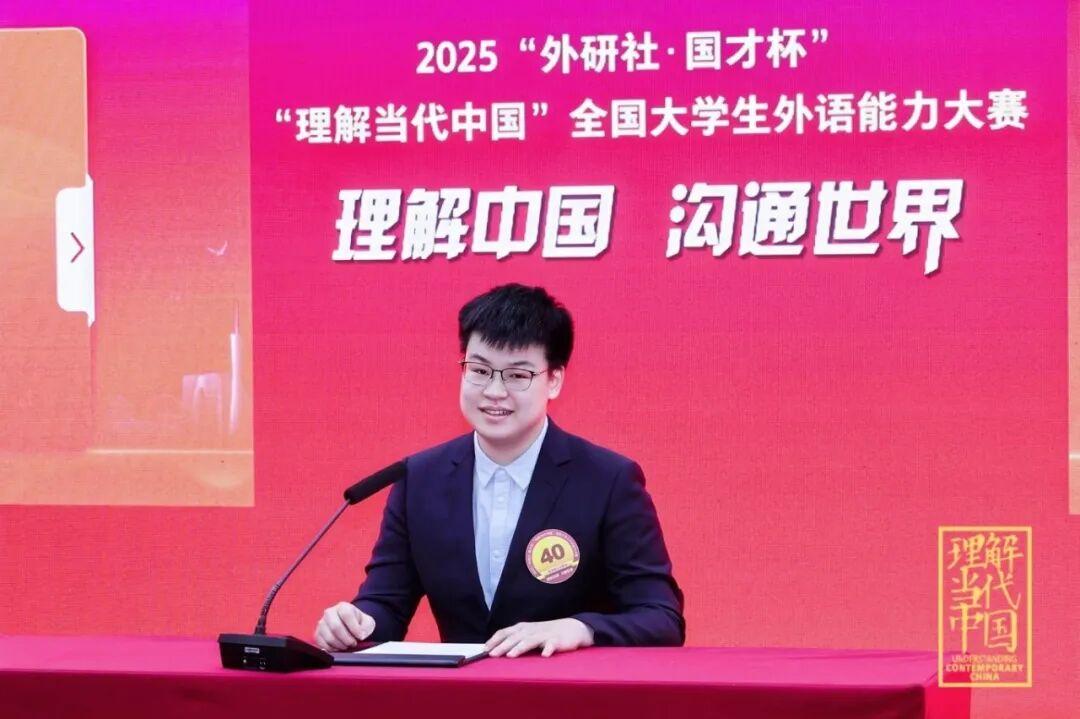Dr. Alexander English’s "Psychological Odyssey"
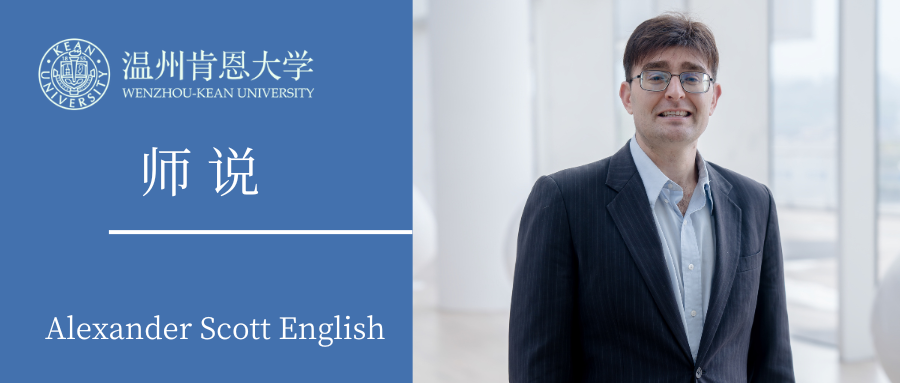
The Journey of Dr. Alexander Scott English embodies intellectual rigor and cross-cultural empathy. An American by birth, yet a China scholar by heart, Dr. English has spent nearly two decades bridging East and West through the lens of intercultural psychology. As a researcher, he dives deep into the human psyche across cultures, while as a teacher, he nurtures curiosity and compassion in every student he meets. This time, we will offer a closer look at the academic path and personal story of him.
"Research Rooted in the Real World"
“I live in China but still see the world through American eyes.” With this perspective, Dr. English investigates how people adapt across cultural boundaries—and how identity, stress, and belonging intertwine in a globalized world.
Since joining WKU in 2023, he has led a significant research project on retaining international talent in Zhejiang Province, funded by a key provincial grant. The study has earned recognition as part of the “2023 Oujiang Young Social Scientists” initiative.
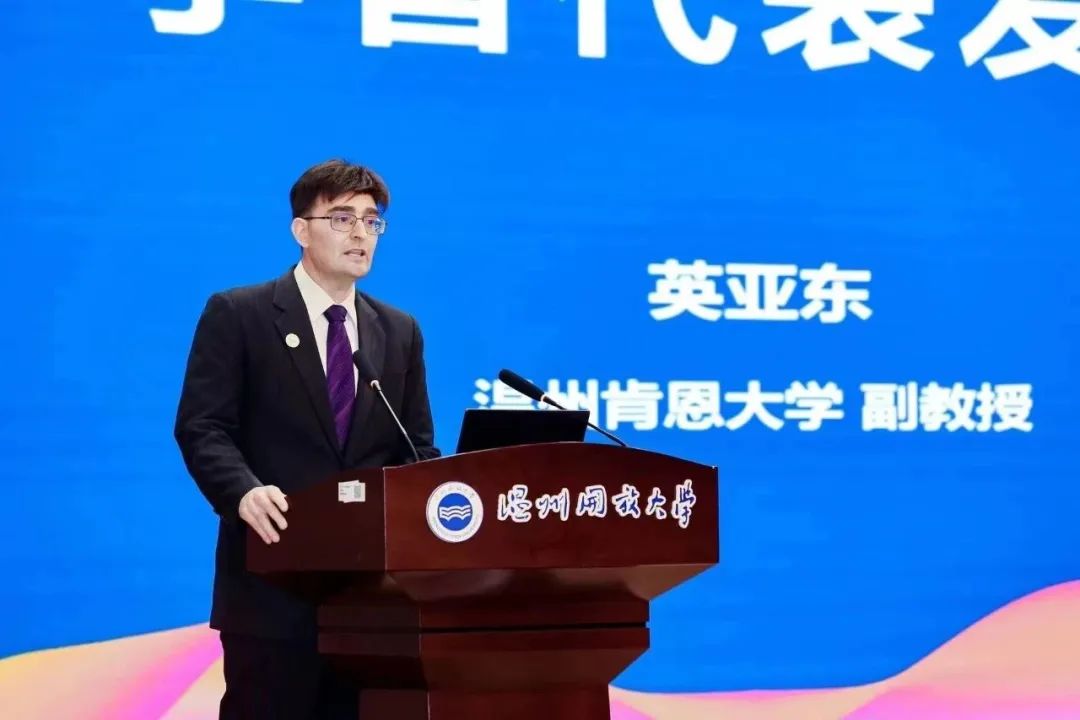
In one of his most innovative methods, Dr. English collected over 350 hair samples from professionals across more than 10 Chinese cities to measure cortisol levels—a biological stress marker. Paired with in-depth interviews, the results revealed invisible pain points facing returnees: unclear identities, marginal roles in promotion systems, and undervaluation of intellectual property. Surprisingly, those with a stronger sense of cultural belonging reported lower stress levels, even with longer working hours.
“I want my work to be more than just published—it should matter.” For Dr. English, psychology is not confined to academic journals. It is a living tool that can inform policy, enrich classrooms, and help societies navigate change.
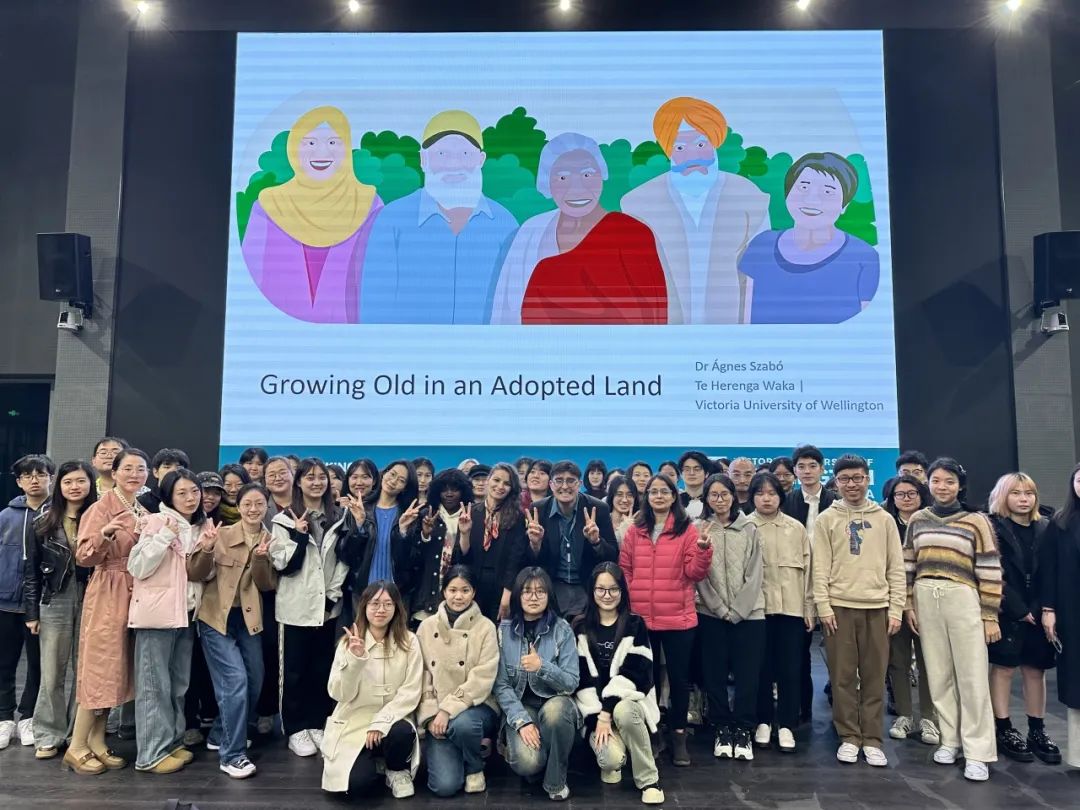
主持《老龄化与文化适应研究的跨文化交流》讲座
“Learn by Doing”
“Stay curious about change” is more than advice. It is the philosophy that defines Dr. English’s approach to teaching. In 2024, he guided students Liu Xiaoying and Ma Yilin winning the Shark Tank by their project "Exploring Cross-Cultural Trust in AI.
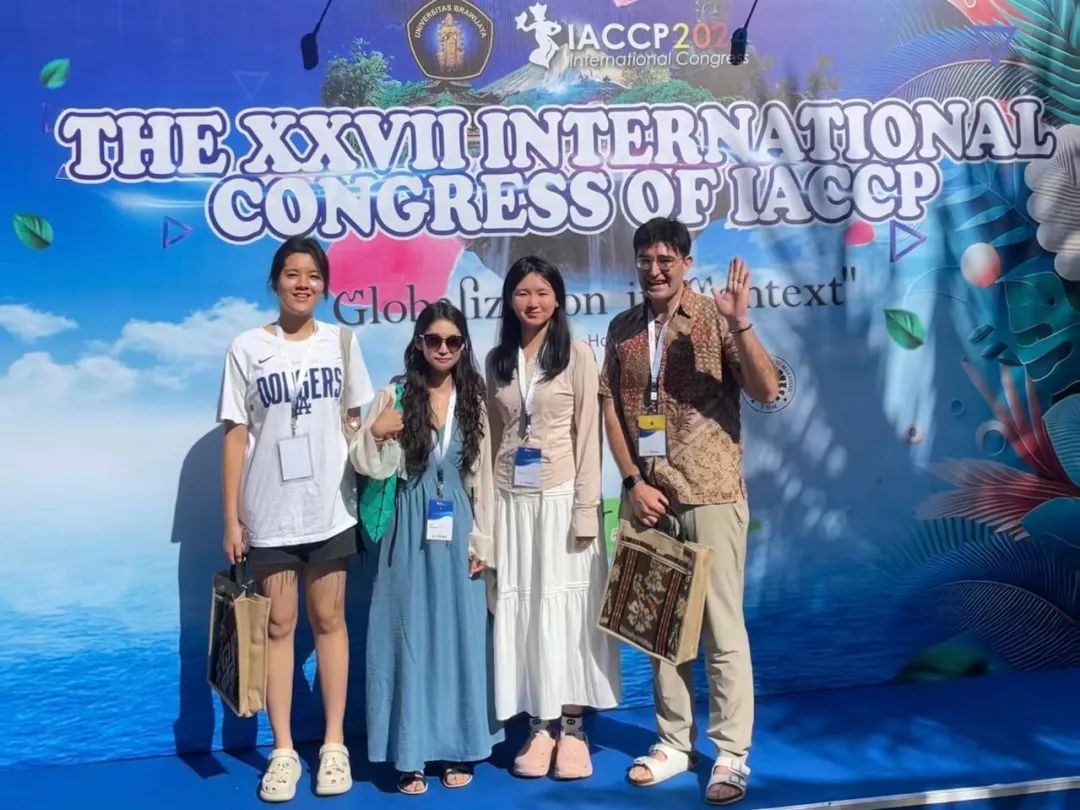
Their prototype, an “AI Interviewer” with cultural sensitivity features, was also showcased at an international conference in Bali. The team later organized “AI Awareness Week,” a campus-wide initiative featuring simulations, resume clinics, and ethics talks. it effectively deepened students’ understanding of how culture and technology intersect in the age of artificial intelligence.
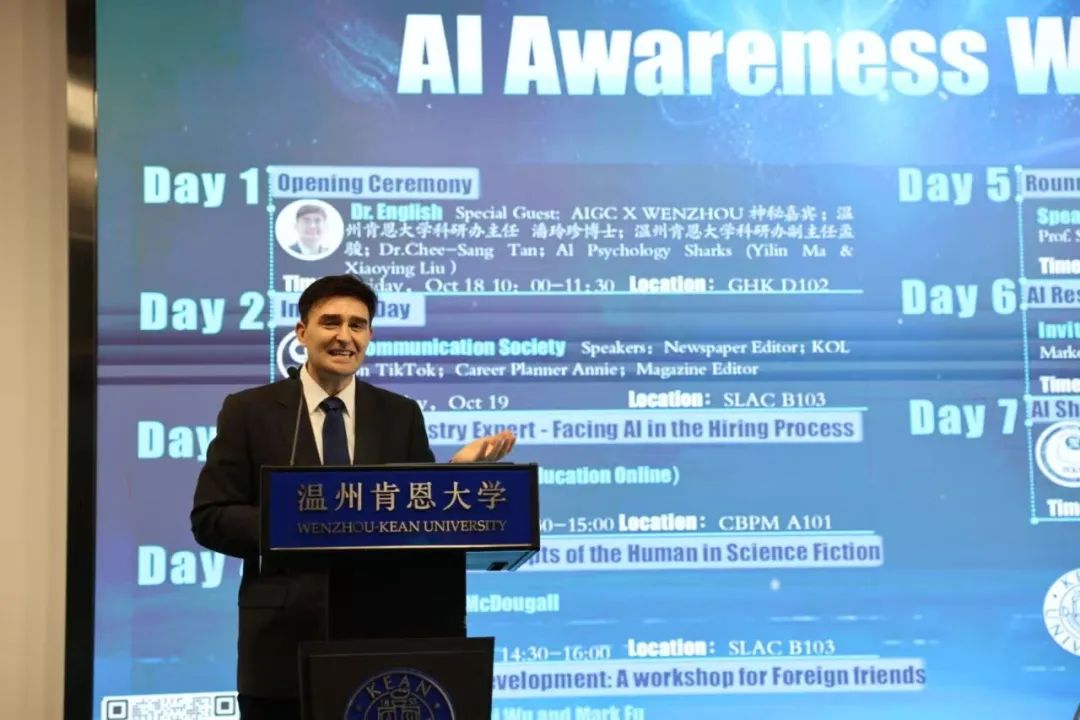
Behind these achievements is Dr. English signature teaching method: letting students do before they fully know. He often encourages students to build models, analyze data, and wrestle with problems before offering guidance. “Don’t wait to be taught,” he tells them. “Go explore.” This active-learning approach has led many of his students to grow into independent thinkers and global citizens. Two core team members from the AI project have since been admitted to the University of Cambridge.
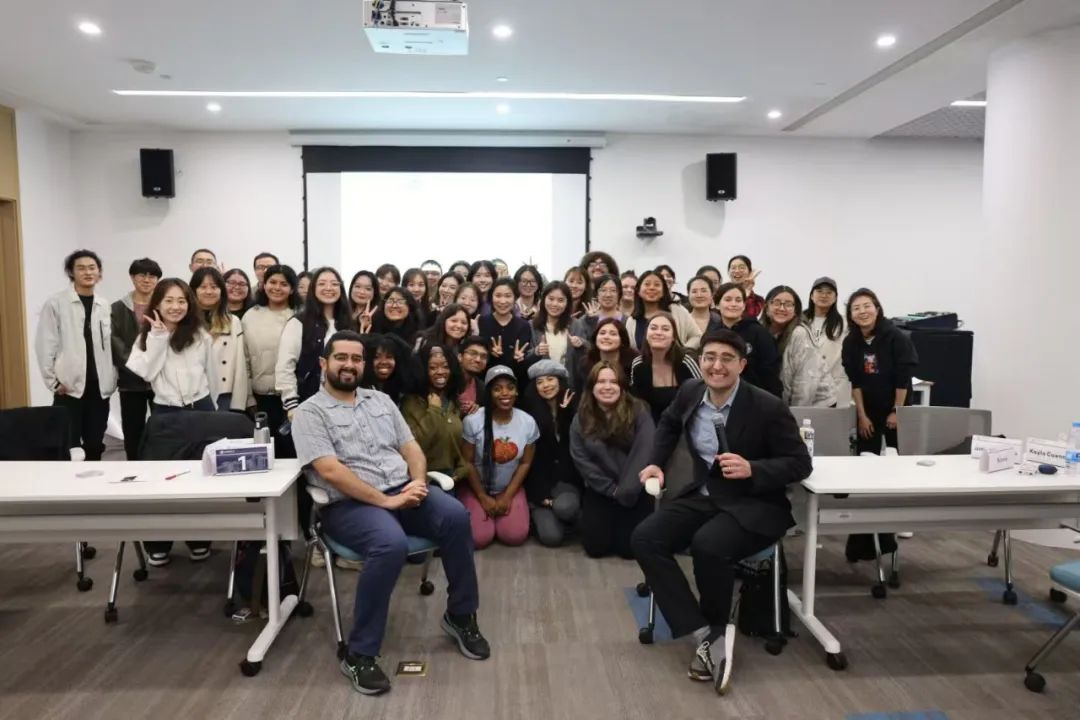
In his view, the classroom is not a one-way street. “I learn just as much from my students as they do from me,” he says. “I’m fascinated by their creativity, energy, and the emoji culture on WeChat—it’s like a language of its own.” Through these micro-interactions, he stays closely attuned to the cultural pulse of the next generation.
“Where the Heart Finds Peace Is Home”
Dr. English’s journey to China began with a simple question typed into Google: “What’s the hardest language in the world?”
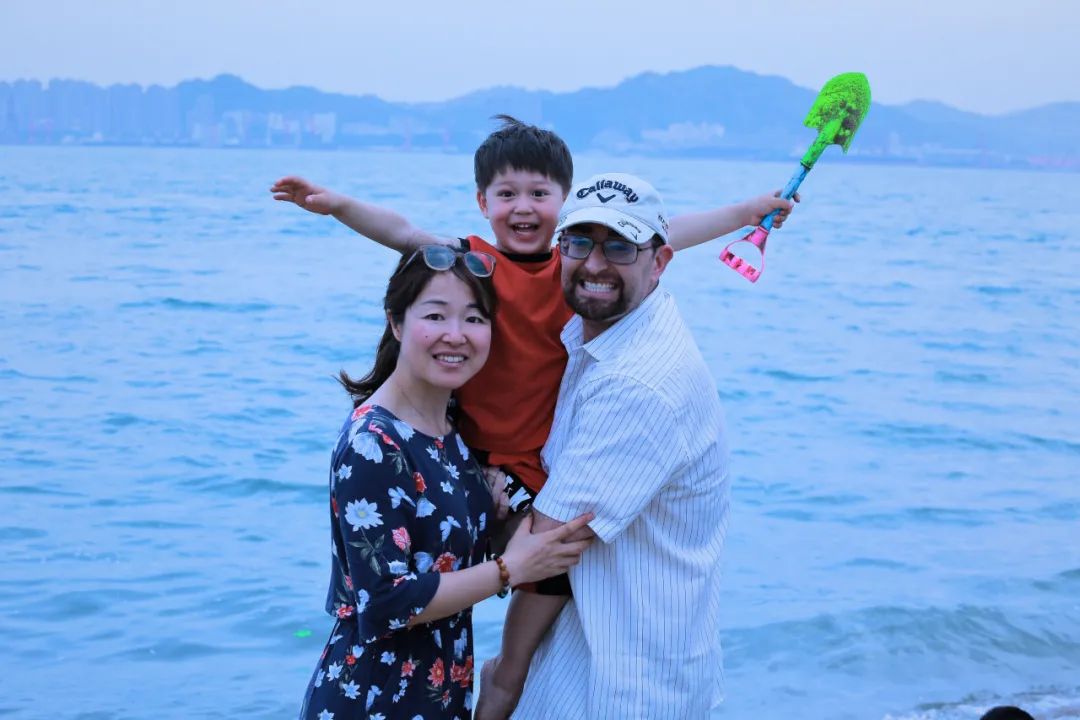
The answer "Chinese" sparked a lifelong adventure of him. Arriving in 2007 for a China-American education initiative, he quickly became intrigued by Chinese as a language and the cultural psychology it reflects. Back then, mental health was still taboo in many parts of Chinese society. That realization ignited his passion to dive deeper, not just as an observer, but as a participant.
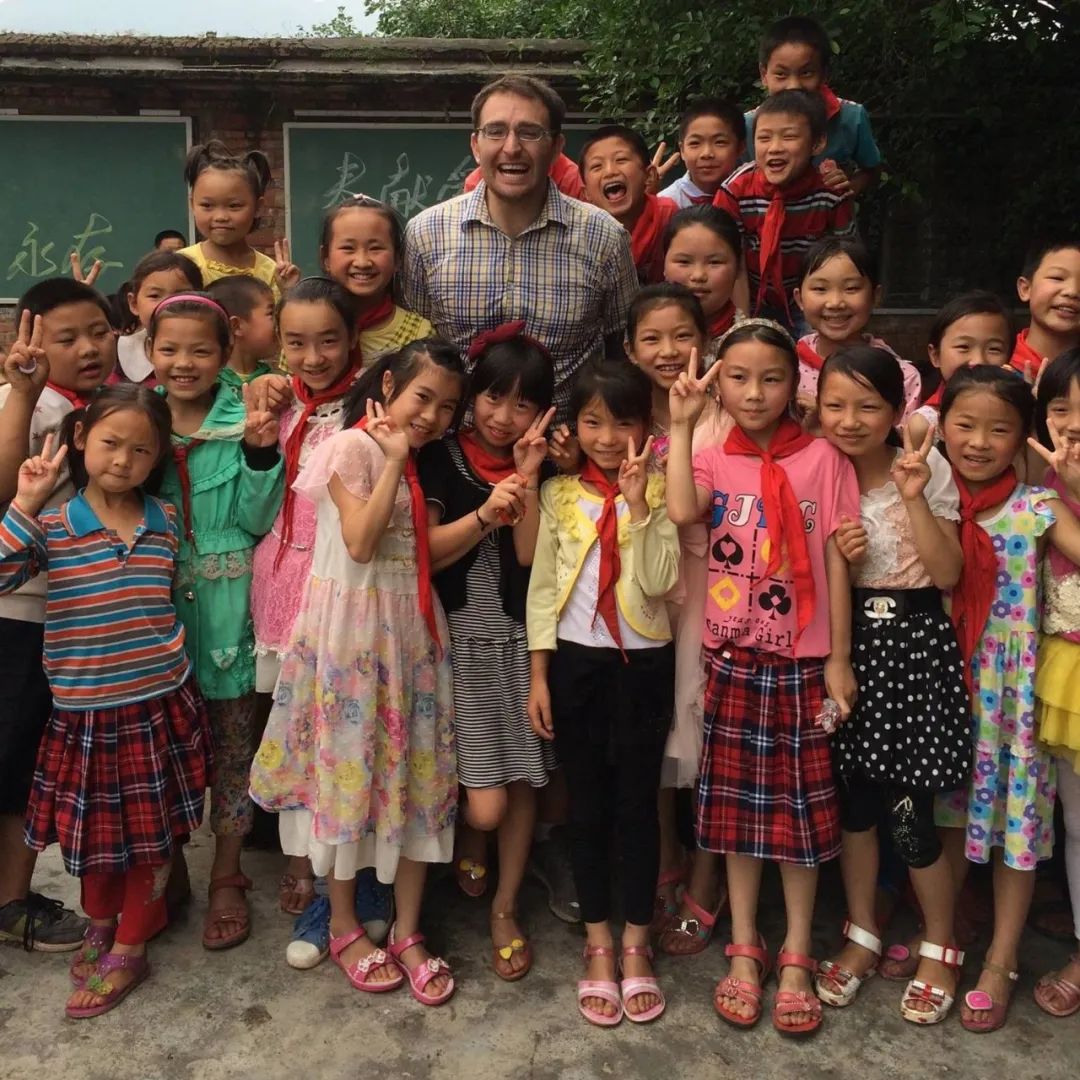
He faced language barriers, cultural disconnects, and even academic isolation. Over time, he did not just study the culture—he lived it. He traveled across 28 provinces, climbed sacred mountains, and led intercultural dialogues across Asia. He collaborated with anthropologists, linguists, and psychologists to explore how cultural narratives shape human thought. He calls these field experiences “experiments of the body”—a way to physically sense culture, not just read about it.
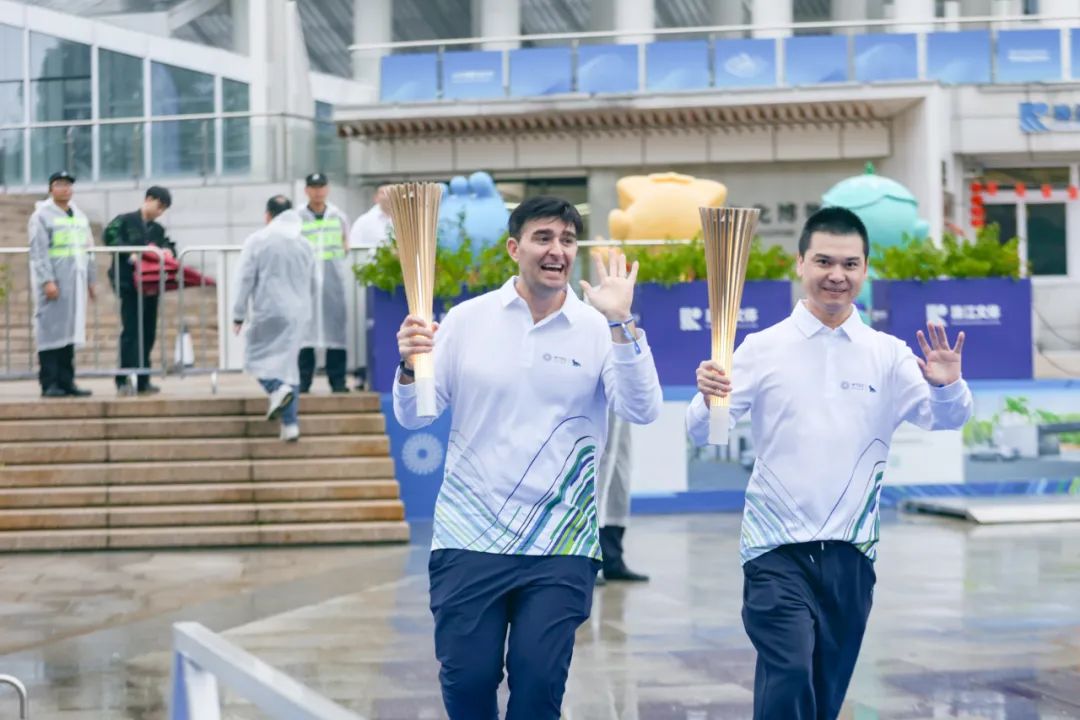
Now fluent in Chinese and culturally embedded, Dr. English sees China not as a field site, but as home. He engages students in class discussions on identity, belonging, and cultural transformation. He finds meaning in ordinary moments—street conversations, online slang, even sticker packs on WeChat.
“I came searching for the world’s hardest language. What I found was a second soul.” He is more than a scholar to his students—he is a cultural bridge, mentor, and friend. They call him a “China expert” not for the title, but for the trust he has earned by listening deeply, observing closely, and connecting authentically. In the global age, where cultures collide and identities evolve, Dr. English continues to explore the shared humanity beneath our differences—one conversation, one study, and one classroom at a time.
- Wenzhou-Kean University Spearheading Sustainability in Higher Education in Asia and in China, Awarded the AASHE STARS Gold-Certified in Sustainability
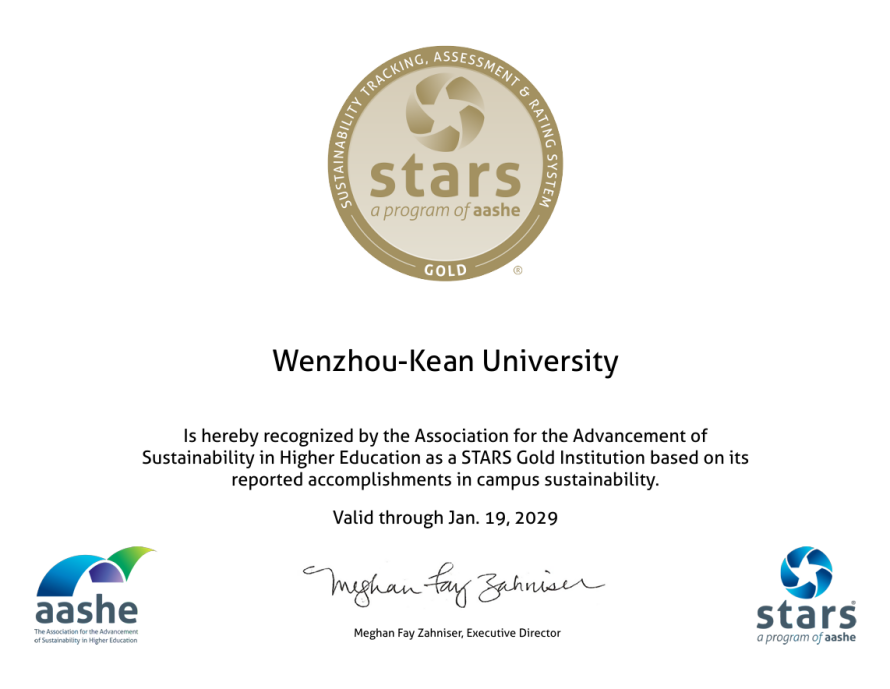
- Media Report | Wenzhou Daily: A Window into Friendship Between Chinese and U.S. Youths Wenzhou-Kean University Welcomes 340 Young Americans in Two Years
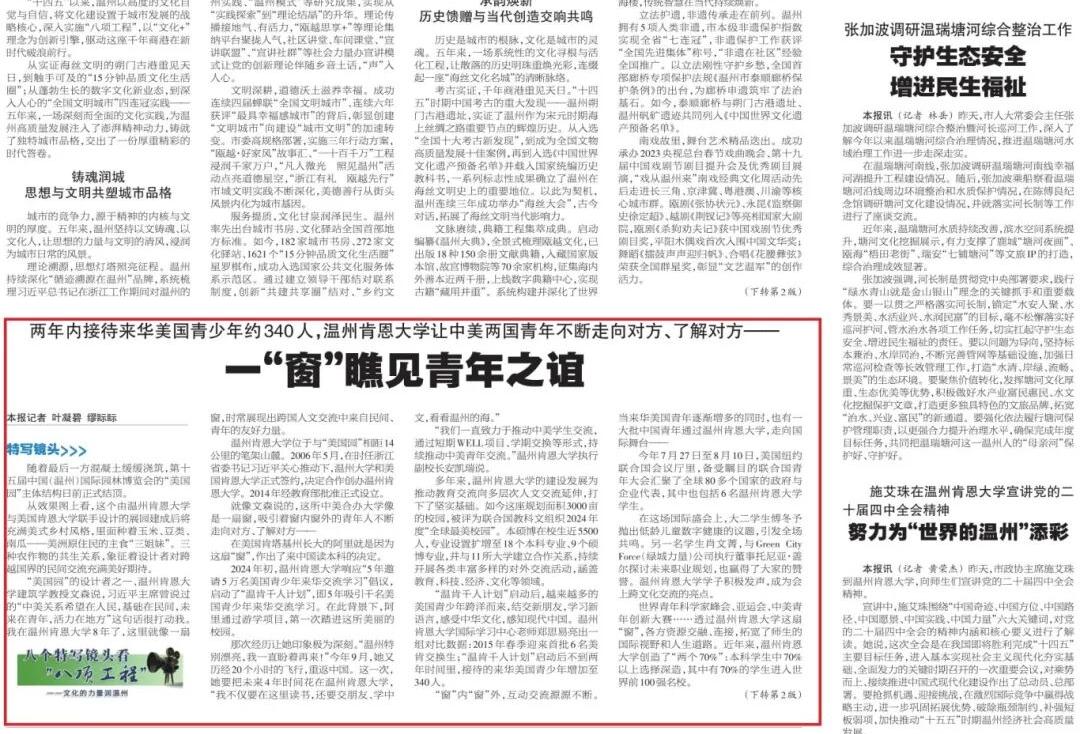
- WKU Student wins first prize in a national English speech contest: What is his answer to the value of boredom?
